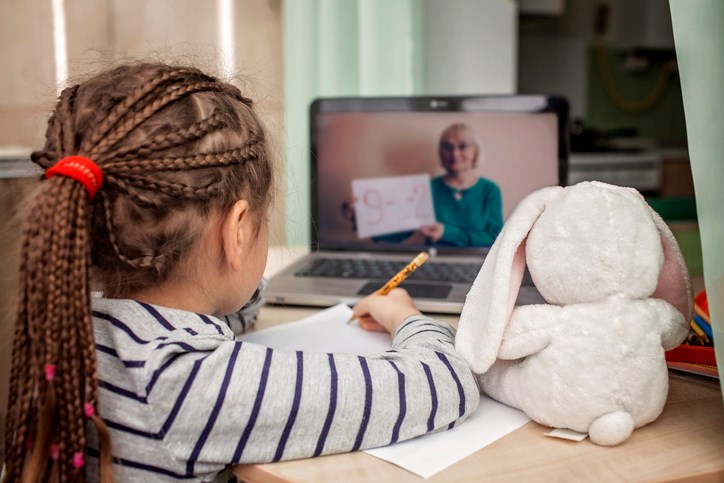The New Westminster school district will be extending its online elementary school program into the 2021/22 school year.
The district started a new K-8 online learning program this year in response to the COVID-19 pandemic. Now it has plans to extend that offering into the new year – with a few changes.
Maryam Naser, the district’s associate superintendent, laid out the plans at the March 9 school board meeting. She said the district wants to pilot the new program as an online stream under the banner of the existing Hume Park Home Learners Program.
But she cautioned it won’t be exactly the same as this year’s online program.
The new version will focus more on “asynchronous” learning, meaning there won’t be as many live, real-time chances to interact with teachers and other students in online “classrooms” as there have been this year. Teachers will still provide and direct the curriculum, but students and families will be expected to work through it largely independently – though there will still be some chances to connect with teachers and potentially attend in person for some “enhanced learning opportunities,” Naser said.
With that shift, the district will be offering the new program for students in grades 2 through 9 – since, Naser noted, the online independent learning model doesn’t work as well for the very young students just starting out in school.
FAMILY INFO SESSION SET
The new program will be offered contingent on interest from families. To gauge that interest and to plan staffing, the district plans to post information on its website and have a virtual parent information session on March 31. After that session, families will have a two-week window to apply, and plans for the program will be finalized by the end of April – a timeline Naser noted will leave families with enough time to make their plans for the new school year.
There are a few caveats for interested families. For one, they’re expected to make a commitment for the entire school year, and any return to live, in-class instruction part way through the year would be dependent on available space in schools.
And Naser said parent participation will be essential to making the program work.
“This is an inclusive program for all students and families wishing to enrol,” she said. “However, it is certainly dependent on parent participation and engagement when children are learning away from their teachers in a remote situation.”
'BANNER MODEL FOR INCLUSION'
Parent Anne Whitmore, whose two children have been in the online program this year, urged trustees to ensure the district keeps the program strong.
“The online program has really been a banner model for inclusion, even though our intention for joining was about health concerns. My neurodiverse daughter has had opportunities to participate fully in the same program as her classmates that she wouldn’t have ever had in traditional school,” Whitmore told trustees.
Whitmore said the changes she’s seen in her daughter’s reading level and confidence have been enormous.
“She’s volunteering to give presentations of her work; she answers questions in every live lesson, which may seem like no big deal, but if you have a kid with challenges, this is huge,” Whitmore said.
She said the online program, with its teacher-provided curriculum, has been a model for how school districts can truly include all students.
“This isn’t just about my kid, because goodness knows I don’t know if I can do another year of this, but there’s definitely a massive need to meet the needs of diverse learners,” she said. “I really hope that our district looks at the opportunity to lead the way with an innovative, adaptable learning delivery model that we already have in place that considers the needs of all learners, where they feel welcome, respected and supported.”
She asked why the district was considering the focus on “asynchronous” learning over this year’s model, and Naser told her the issue is really one of numbers.
Naser pointed out virtual “classrooms” work best when there are enough students of a similar grade level, so the ratio of live-time versus independent lessons will depend in part on the number of students who sign up for the program.
She said the district wants to still offer the live group experiences but wants parents to understand that committing to the new program will require a real “partnership” between parents and teachers.
Follow Julie MacLellan on Twitter @juliemaclellan.
Email Julie, [email protected].




